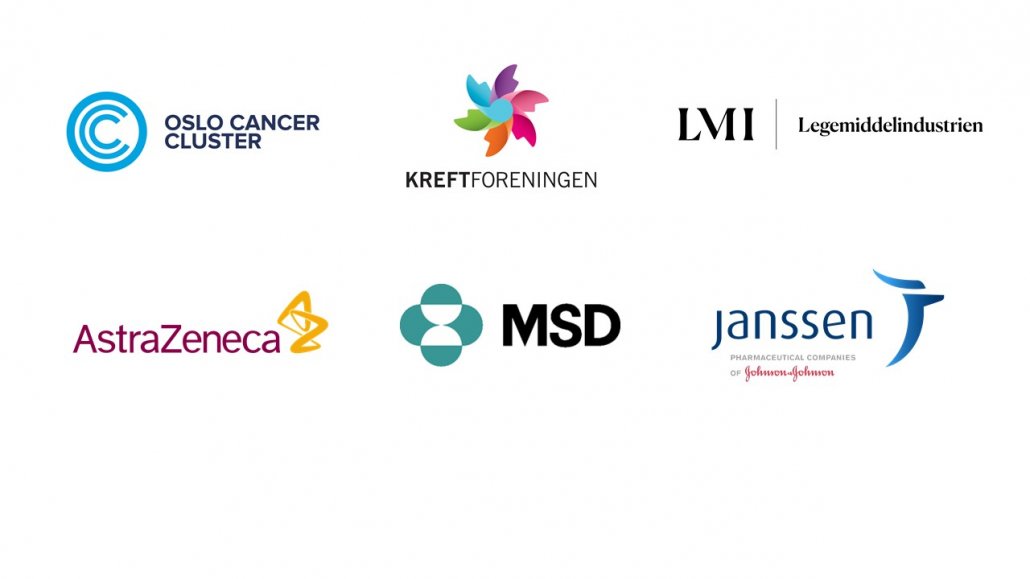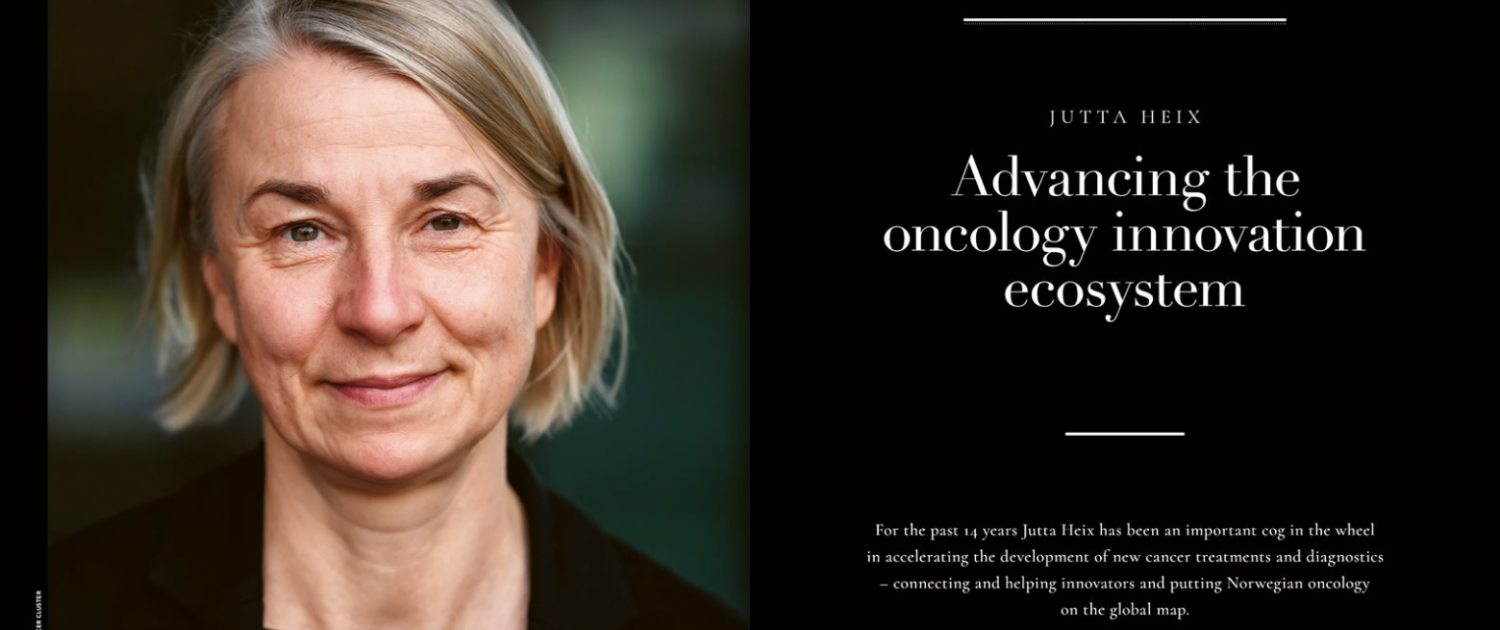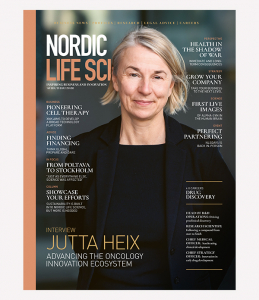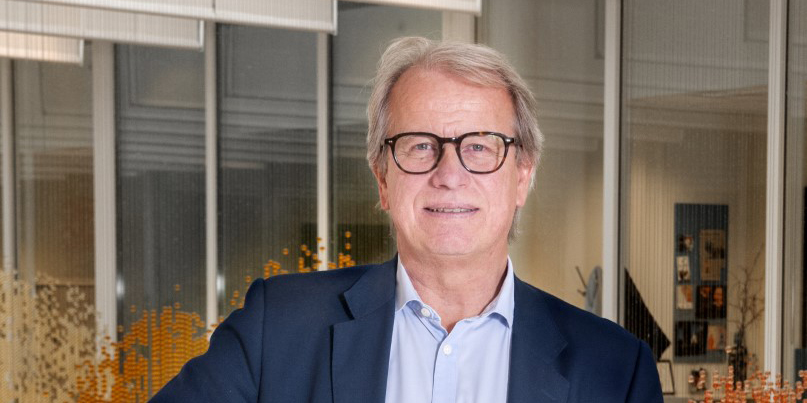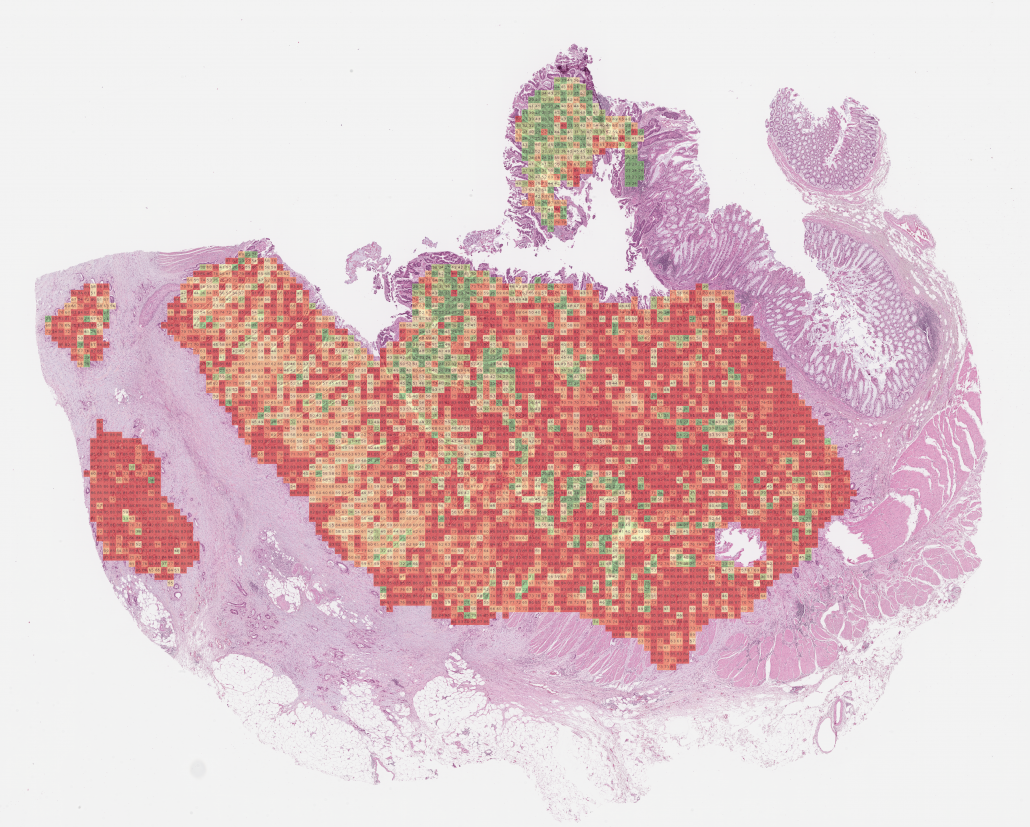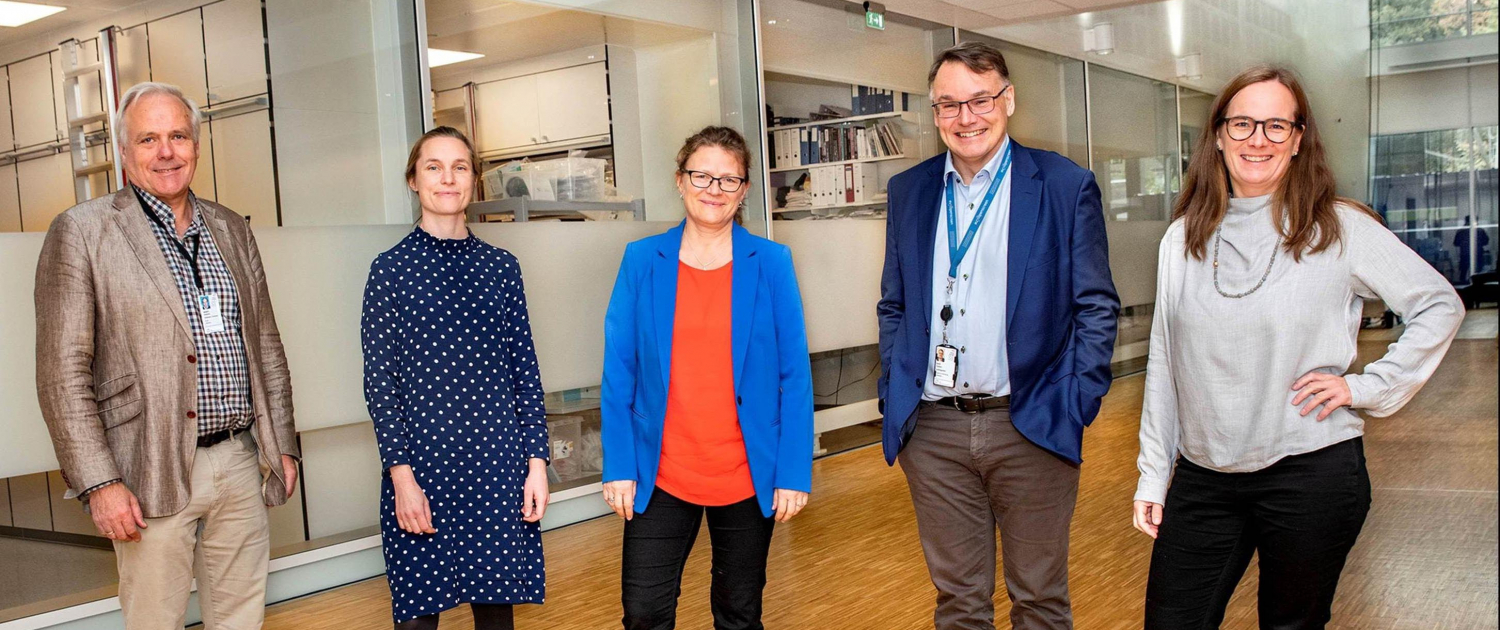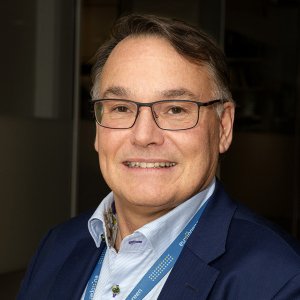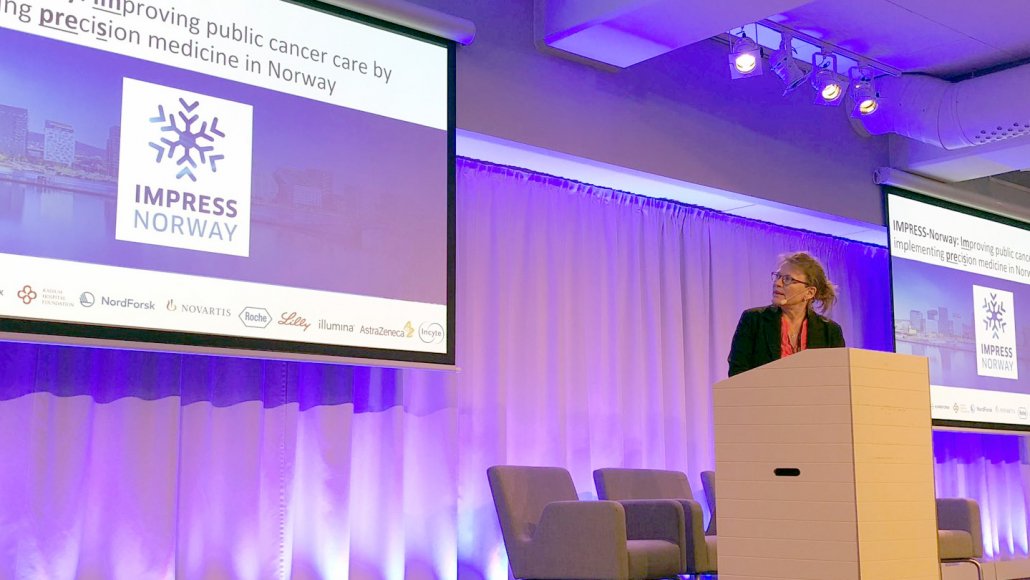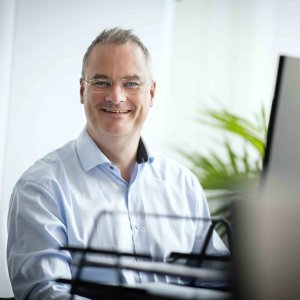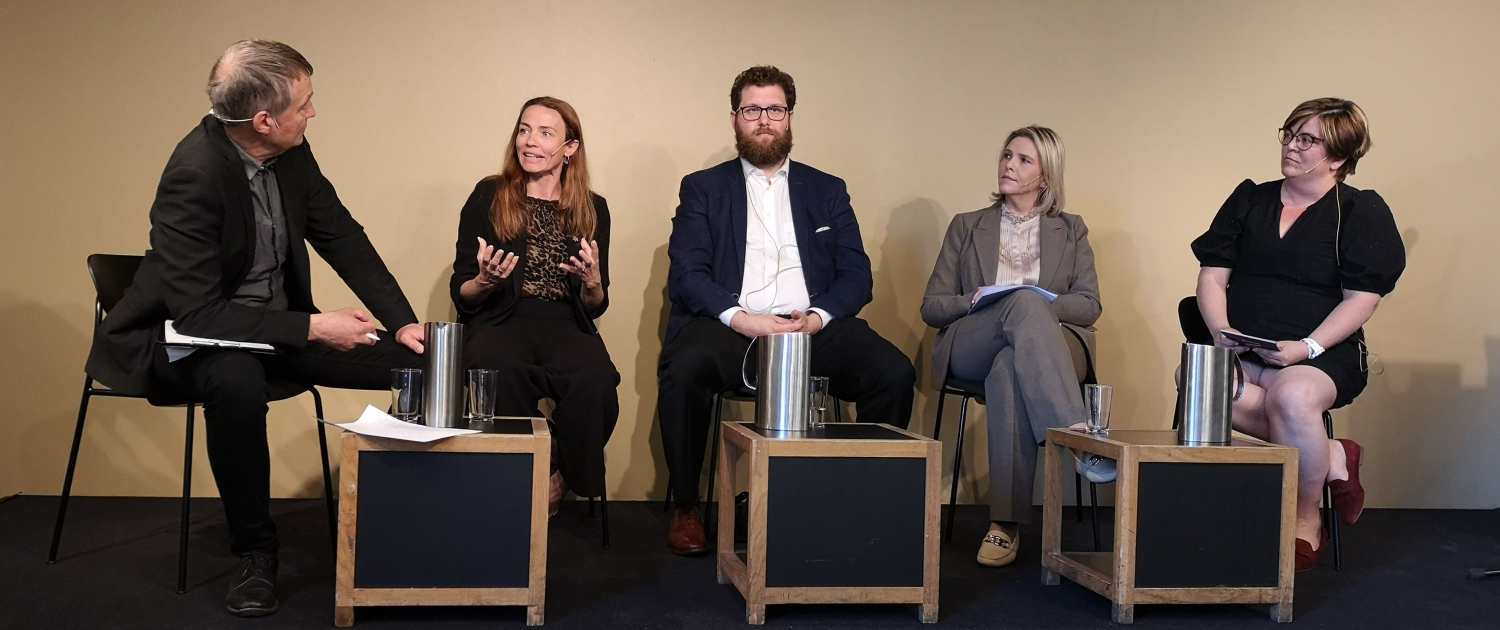
Where are the Norwegian political ambitions for cancer treatment? We need more public-private collaboration on cancer.
Breakfast and political conversations on cancer are the hallmark for our meeting series Fremtidens kreftbehandling. On 21 April 2022, health officials, politicians, patient spokespeople and industry representatives met to discuss the future of cancer treatments. They all agreed: we need more public-private collaboration on cancer.
As introduction, Ketil Widerberg, general manager of Oslo Cancer Cluster, presented the results from a recent survey by Kantar of the Norwegian population’s views on health policy. The survey showed a majority want more modern cancer treatments with less side effects at public hospitals. They want the same treatment options as in other Nordic countries. They also think the public health service should pay for cancer treatments that work.
“We believe cancer can go from being a deadly disease to a disease people live well with, but we can’t get new treatments to the patients if the public and private sector don’t work together,” Widerberg said. “When we build roads, we assess the economy on a broader scale than when we assess new treatments. Is this really the kind of politics we want?”
A cancer revolution underway
The people’s wishes are clear, but how can doctors offer more modern treatments to their patients? In the first panel discussion, Anne Karin Rime, president of the Norwegian Medical Association, Jan Frich, deputy CEO of the South-Eastern Regional Health Authority, and Ingrid Stenstadvold Ross, general secretary of the Norwegian Cancer Society discussed how patients can gain access to precision medicine, which means the right treatment to the right patient at the right time.
“We are living in a kind of cancer revolution. There are many extremely promising treatments on the way, especially in precision medicine,” Stenstadvold Ross said. “The current system assesses the cost and effect of a treatment by looking at an average patient group. For lung cancer, it will typically be 60-plus men with a history of smoking, but if I developed lung cancer, my characteristics wouldn’t fit this description.”
Rime argued that these new, revolutionary medicines have made the doctor’s job more complicated.
“The role of the doctor has changed from deciding the best treatment for the patient. Now the doctor also needs to think about society as a whole: what can we afford to treat? It is extremely difficult for a doctor to know there are treatments or diagnostics that may help the patient, which they can’t offer,” said Rime. “Diagnostics become more important now and offering genetic tests to all patients to identify which treatment will work.”
Frich agreed that more precise diagnostics is the solution.
“The key to personalised treatment is good diagnostics,” Frich commented. “The last two-three years, much has happened in personalised medicine. We have created a national plan for advanced diagnostics and set aside resources for this. An infrastructure for precision diagnostics is being built. The CONNECT collaboration with the pharmaceutical industry work on a large clinical study called IMPRESS, which is supported with NOK 60 million from the regional health authorities.”
Make your voice heard
The system needs to change so that patients can take part in the cancer revolution. Gloria Traina is a PhD and advisor at the Specialist Health Section in the Norwegian Ministry of Health and Care Services. They are working on a Strategy for Personalised Medicine to be launched before 2023.
“There has been some success getting precision medicine to Norway and there are many new initiatives, including InPred, IMPRESS and CONNECT. We now see there is a need for a revised strategy,” Traina explained.
More public-private collaboration
While the new strategy materialises, patients are still waiting for access to better treatments. In the debate, politicians were challenged to declare their ambitions for Norway.
”I want to see more political vision. The European Union has launched a Cancer Mission, the goal is to improve the lives of 3 million people by 2030. What are Norway’s ambitions?” Stenstadvold Ross asked.
“We need to look at how we rig the decision-making systems, for example by involving clinicians and patients, how we attract clinical studies and how we implement personalised medicine,” Karl Kristian Bekeng from the Labour Party (Arbeiderpartiet) said. “When it comes to collaboration on new technologies and new medicines, there should be a lot more public-private collaboration. This should not be a replacement of the public health service, but an improvement of the public health service.”
Sylvi Listhaug from the Progress Party Association (Fremskrittspartiet) criticised the decision-making system.
“I think many patients – and the population as a whole – question why Norway is so late in implementing new medicines that can save lives and give better quality of life. I also think there are many desperate doctors, who see there are medicines that can give their patients a better life, which they can’t offer. The way we do this in Norway is completely out-dated. It doesn’t work. We are putting forward a new bill to Parliament now to change the whole system,” Listhaug announced.
Hege Edvardsen, senior adviser in LMI, represented the pharmaceutical industry in the debate and challenged the politicians to become more hands-on.
“We see that political decisions do not agree with what is actually delivered in the health service,” said Edvardsen, “It is important to strengthen the public-private collaboration. We have done a lot in oncology, but we are still struggling to get access to new treatments and we are lagging behind other Nordic countries. We need to consider the entire ecosystem when we talk about these things. If we wish to increase the number of clinical studies and attract research investments to Norway, we must also become better at solving the access part.”
The meeting also included mingling between the participants and the audience, which sparked further conversations and reflections. The debate will continue in our communication channels and at our next meeting during Arendalsuka at Clarion Hotel Tyholmen on 18 August 2022 (08:00-09:30). We hope to see you there!
Watch the meeting here (in Norwegian):
This meeting was a collaboration between Oslo Cancer Cluster, Norwegian Cancer Society, LMI, AstraZeneca, Janssen and MSD.
